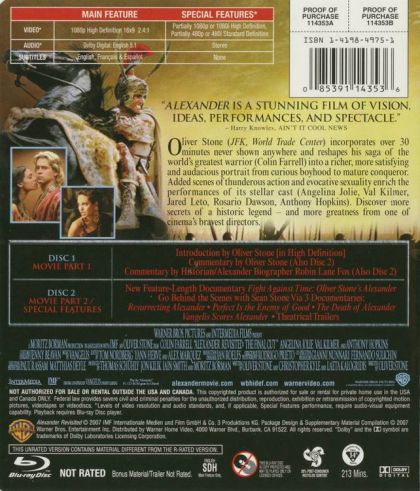Alexander Revisited – The Final Cut

The film "Alexander", directed by Oliver Stone, follows the life story of Alexander the Great from the time he was a young man in Macedonia, through the time when he conquered a giant portion of the world with his army. It covers his romances with both men and women, especially with a sensual dancer portrayed by Rosario Dawson. It shows how Alexander had an unusual relationship with his mother, played by Angelina Jolie, and how he led his army from Greece to India, fighting such opponents as Darius, King of Persia. The movie covers many exciting battles and features a wide variety of interesting scenery as Alexander and his army march east.
Alexander, the King of Macedonia, leads his legions against the giant Persian Empire. After defeating the Persians he leads his Army across the then known world venturing further than any Westerner had ever gone all the way to India.
Written by Anonymous
Conquering 90% of the known world by the age of 25, Alexander the Great led his armies through 22,000 miles of sieges and conquests in just eight years. Coming out of tiny Macedonia, Alexander led his armies against the mighty Persian Empire, drove west to Egypt, and finally made his way east to India. This film will concentrate on those eight years of battles, as well as his relationship with his boyhood friend and battle mate, Hephaestion. Alexander died young, of illness, at 33. Alexander's conquests paved the way for the spread of Greek culture (facilitating the spread of Christianity centuries later), and removed many of the obstacles that might have prevented the expansion of the Roman Empire. In other words, the world we know today might never have been if not for Alexander's bloody, yet unifying, conquest.
Written by austin4577@aol.com
Alexander, the King of Macedonia(Today, Republic of Macedonia), leads his legions against the giant Persian Empire. After defeating the Persians he leads his Army across the then known world venturing further than any Westerner had ever gone all the way to India.
Written by Dennis Higgins, Intermedia, dennis_higgins@intermediafilm.com
'Alexander' traces the short, but adventurous life of the Macedonian conqueror, Alexander the Great (356-323 B.C.), whom conquered almost the entire known world of his era. From his childhood as the son of King Philip, to acending the thrown at age 20 in 336 B.C. upon his father's murder, and starting in 334 B.C., Alexander crossed into Asia on his 11-year conquest of the known world. From his conquests of Egypt, to battles with the Persians and the capture of Babylon, operations near Maracanda and in Afghanistan, and pushing all the way to India where he reigned unchallenged before his sudden death at age 32. Though Alexander made use of the well-oiled army created by his father, he pushed the limits of Macedonian & Greek power to levels King Philip could not have dreamed of.
Written by Anonymous
Historical, glamorous biopic (with mystical and religious elements) about the life of famous Macedonian ruler and conqueror Alexander, the Great (appr. 356-323 B.C.), mainly concentrating on his youth and his conquering of Persia and India. The son of Macedonian king Phillip II and his wife Olympias became king when he was 20 years old and died with 32, by this time having conquered 90% of the world as it was explored by the time he lived, ruling over parts of three continents and several countries.
Written by smoothhoney1265
'Alexander' (Colin Farrell) is based on the true story of the greatest military leader in the world during the fourth century B.C. Alexander first led his army to Western Asia, and though greatly outnumbered, defeated the Persian army. Next Alexander took his army into Central Asia and then into India. Alexander the Great conquered 90% of the known world and forged an empire stretching from Greece to India by the time of his death at age 32. Douglas Young (the-movie-guy)
SYNOPSIS
The film is based on the life of Alexander the Great, King of Macedon, who conquered Asia Minor, Egypt, Persia and part of ancient India. Shown are some of the key moments of Alexander's youth, his invasion of the mighty Persian Empire and his death. It also outlines his early life, including his difficult relationship with his father Philip II of Macedon, his strained feeling towards his mother Olympias, the unification of the Greek city-states and the two Greek Kingdoms (Macedon and Epirus) under the Hellenic League,[3] and the conquest of the Persian Empire in 331 BC. It also details his plans to reform his empire and the attempts he made to reach the end of the then known world.
The story begins 40 years after 323 BC, around 283 BC, with Ptolemy I Soter, who narrates throughout the film. We see Alexander's daily life and the strained relationship between his parents. Alexander grows up with his mother Olympias and his tutor Aristotle, where he finds interest in love, honor, music, exploration, poetry and military combat. His relationship with his father is destroyed when Philip marries Attalus's niece, Eurydice.
After Philip is assassinated, Alexander becomes king of Macedonia and Greece. Having briefly mentioned his punitive razing of Thebes and burning of Persepolis, Ptolemy gives an overview of Alexander's west-Persian campaign, including his being declared as the son of Zeus by the Oracle of Amun at Siwa Oasis, his great battle against the Persian Emperor Darius III in the Battle of Gaugamela and his eight-year campaign across Asia.
Also shown are Alexander's private relationships with his childhood friend Hephaestion and later his wife Roxana. Hephaestion compares Alexander to Achilles, to which Alexander replies that, if he is Achilles, Hephaestion must be his Patroclus (Achilles' best friend and possibly lover). When Hephaestion mentions that Patroclus died first, Alexander pledges that, if Hephaestion should die first, he will follow him into the afterlife. Hephaestion shows extensive jealousy when he sees Alexander with Roxana and deep sadness when he marries her, going so far as to attempt to keep her away from him after Alexander murders Cleitus the Black in India. After Hephaestion succumbs to an unknown illness either by chance or perhaps poison, speculated in the movie to be Typhus carried with him from India. Alexander distances himself from his wife, despite her pregnancy, believing that she has killed Hephaestion. He dies less than three months after Hephaestion, at the young age of 32, keeping his promise that he would follow him.
Cast View all
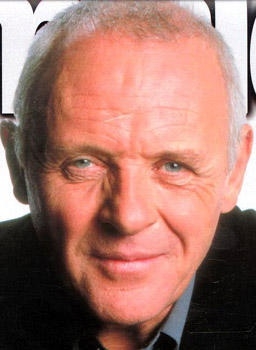
|
Anthony Hopkins | Old Ptolemy |

|
Colin Farrell | Alexander |

|
Angelina Jolie | Olympias |
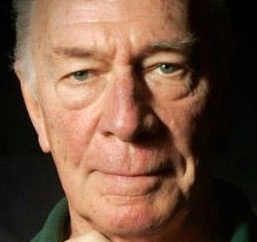
|
Christopher Plummer | Aristotle |
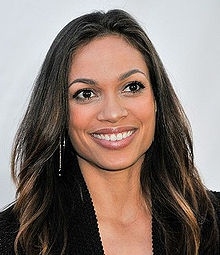
|
Rosario Dawson | Roxane |
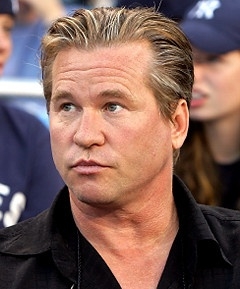
|
Val Kilmer | Philip |

|
Toby Kebbell | Pausanius |

|
Tim Pigott-Smith | Omen Reader |

|
Jared Leto | Hephaistion |

|
Jonathan Rhys Meyers | Cassander |
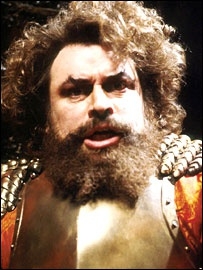
|
Brian Blessed | Wrestling Trainer |
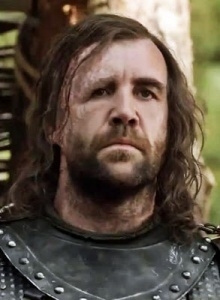
|
Rory McCann | Crateros |

|
John Kavanagh | Parmenion |

|
Neil Jackson | Perdiccas |

|
Joseph Morgan | Philotas |
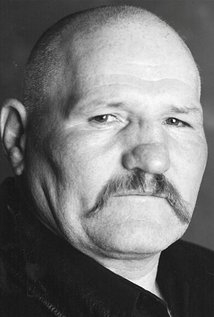
|
Rab Affleck | Attalus' Henchman |

|
Connor Paolo | Young Alexander |

|
Féodor Atkine | Roxane's Father |

|
Nick Dunning | Attalus |
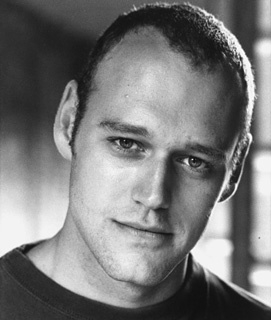
|
Elliot Cowan | Ptolemy |
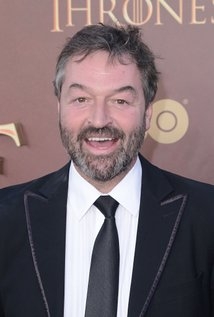
|
Ian Beattie | Antigonus |

|
Denis Conway | Nearchus |

|
Fiona O'Shaughnessy | Nurse |
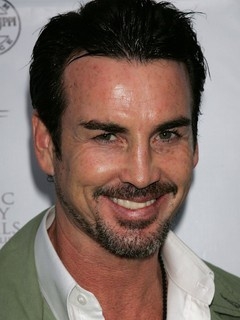
|
Gary Stretch | Cleitus |

|
Tadhg Murphy | Dying Soldier |
Crew
| Director | Oliver Stone |

|
| Writer | Oliver Stone, Christopher Kyle, Laeta Kalogridis | |
| Producer | Moritz Borman, Hans De Weers, Matthias Deyle, Léonard Glowinski, Pierre Grunstein, Jon Kilik, Michael Maker, Aslan Nadery, Tabrez Noorani, Gianni Nunnari, Santa Pestonji, Paul Rassam, Pravesh Sahni, Volker Schauz, Thomas Schuhly, Iain Smith, Christian Stibbe, Fernando Sulichin, Robert S. Wilson | |
| Musician | Vangelis | |
| Photography | Rodrigo Prieto | |
Edition details
| Edition | Collector's Edition: The Final Cut |
|---|---|
| Packaging | Custom Case |
| Nr Discs | 2 |
| Screen Ratios | Theatrical Widescreen (2.35:1) |
| Audio Tracks | Dolby Digital 5.1 [English] |
| Subtitles | English | English (Closed Captioned) |
| Distributor | Warner Home Video |
| Layers | Single side, Dual layer |
| Edition Release Date | Feb 27, 2007 |
| Regions | Region A |
Personal
| Owner | Kerry & Dawn |
|---|---|
| Location | Movies-05 |
| Storage Device | TD 09 |
| Purchased | On Aug 08, 2010 |
| Index | 422 |
| Added Date | May 17, 2015 05:42:06 |
| Modified Date | Aug 03, 2024 00:47:10 |
Notes
| Version | Run Time |
| Theatrical Edition | 2:55 |
| Director's Cut | 2:47 |
| Final Cut | 3:34 |
| Ultimate Cut | 3:27 |
One has to differentiate between three official cuts of the movie. First of all there's the Theatrical Cut that runs approx. 175 minutes. and has been released to cinemas in November 2004.
In July 2005 a Director's Cut was put out on DVD that is shorter than the original version and runs approximately 167 minutes. Stone did not put in any new scenes, save for an extension of an already existing scene and a short insertion from Aristotle. However, he did change the movies structure; for example, the battle of Gaugamela is now seen earlier. Also, the movie is a bit more fast-paced since some scenes have been trimmed down and many dialogue details have been changed, something one most likely only notices if one knows both versions. A good example is Alexander being taught by Aristotle, as shown in the report. The Director's Cut is a bit clearer than the Theatrical Version, the structure is a bit more demanding and the opening is better designed. It is altogether better than the Theatrical Version but not obligatory if you already own the Theatrical Version.
But Stone wasn't finished with his movie yet because later the so-called Final Cut was released, that runs approximately 214 minutes. The only major extensions concerns Alexander's servant Bagaos. The homoerotic undertones already in the Theatrical Version were too much for many viewers. In the final Cut, we now get to know the servant's name, he is noticed among many beautiful women by Alexander (much to Hephaistion's regret), seemingly dances only for Alexander in India and even shares a bed with him. Apart from Bagaos the Final Cut merely offers more detailed characterizations, deepening of the characters' relations to each other and short impressions of Alexander's life often only as a commentary from the Off by Ptolemaios. On top of that, a healthy dozen of violent scenes have been re-integrated into the battle scenes that presumably had to to be cut for the Theatrical release, for they are a good deal more brutal than we are used from the rest of the film. The most obvious change is again the structure of the movie. The battle of Gaugamela has been moved towards the beginning again (as planned in an early version of the script) and is seen even before Alexander's childhood and adolescence. The events in Bactria have been reassembled as well. First we see the wedding with Roxane, then the movie jumps back to the discussion with the generals and the celebration before that where Alexander meets and falls in love with Roxane before the movie jumps back to the wedding night. All other changes from the Director's Cut are present in the Final Cut as well. Again, one can find a very detailed comparison between the Theatrical Version and the Final Cut with pictures here.
In 2014 there is one more cut called the Ultimate Cut that will run 207 minutes.


 English
English  Nederlands
Nederlands  Deutsch
Deutsch  Français
Français  Español
Español  Magyar
Magyar  српски
српски  Dansk
Dansk  Italiano
Italiano  Svenska
Svenska  Slovenčina
Slovenčina  Português
Português 

